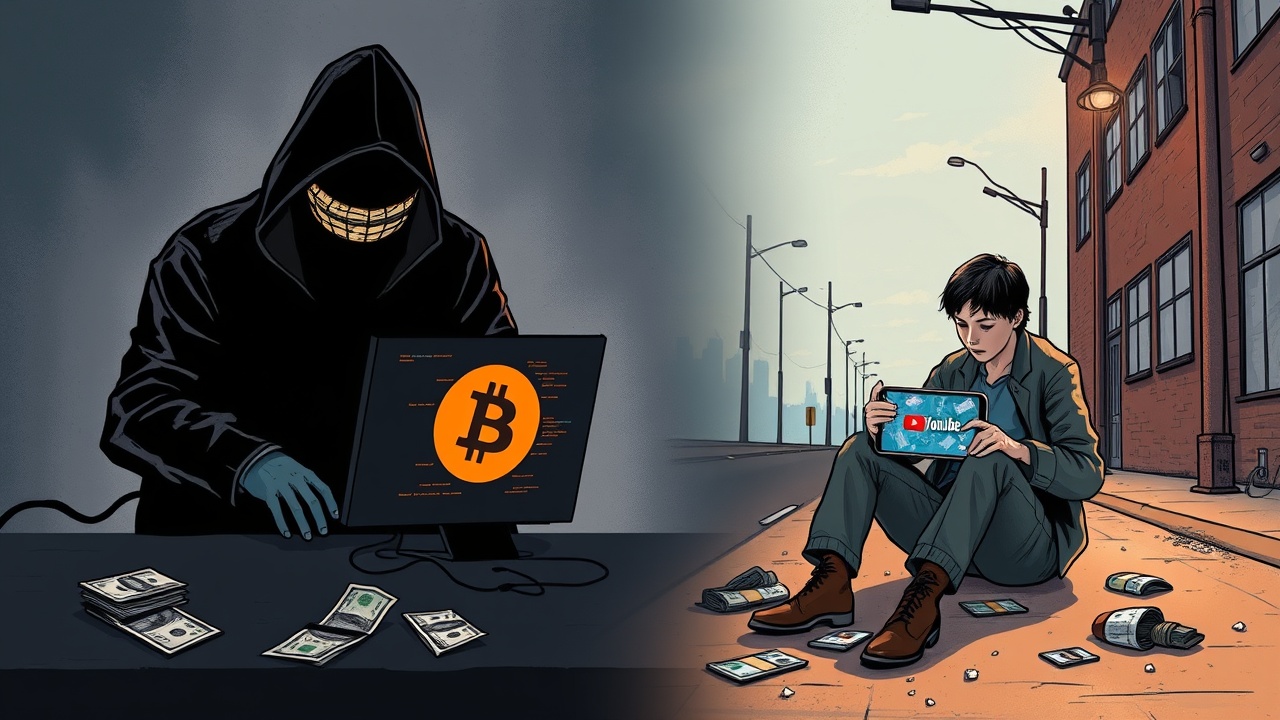Concerns Over YouTube’s Inaction
Steve Wozniak, the co-founder of Apple, has voiced his concerns regarding YouTube’s inaction towards a fraudulent Bitcoin scheme that misrepresented him. He highlights an urgent need for improved measures to combat the rise of deepfake scams globally.
Wozniak’s Experience with Scams
Wozniak conveyed the severity of the situation in an interview with CBS News, stating:
“Some victims reported losing their entire life savings. That constitutes a crime, and as responsible individuals, we should intervene when we witness wrongdoing.”
The issue first came to Wozniak’s attention years ago when his wife, Janet, received an email from someone who had fallen victim to the scam, inquiring about their potential reimbursement. According to Janet, the scammers utilized footage of Wozniak discussing Bitcoin, embellished it with a polished frame containing a Bitcoin wallet address, and falsely promised that anyone who sent Bitcoin would receive double their investment back.
The Pervasive Nature of Scams
Wozniak lamented the pervasive nature of spam and phishing scams, expressing frustration over the insufficient efforts made to curb such activities. He remarked:
“The prevalence of these deceitful attempts remains alarming, and there seems to be a lack of proper enforcement to tackle it effectively.”
Impact of AI-Generated Deepfakes
With the rise of AI-generated deepfakes, the landscape of internet fraud has expanded significantly. Reports indicate that online scams resulted in losses of approximately $9.3 billion in 2024, as documented by the FBI’s Internet Crime Complaint Center (IC3). The actual figures may be even greater. Not only has Wozniak faced impersonation, but high-profile figures like Elon Musk and Jeff Bezos have also found their images exploited in similar fraudulent schemes.
Calls for Regulatory Oversight
Critics argue that major tech platforms are failing to implement timely and robust measures to combat misleading advertisements. Recently, UK Liberal Democrat MP Max Wilkinson echoed Wozniak’s sentiments, advocating for enhanced regulatory oversight of online ads to meet the same standards currently applied to television and radio in the UK. He warned:
“We must ensure that unprincipled advertisers do not exploit existing loopholes.”
Google’s Response
In response to these criticisms, Google, the parent company of YouTube, announced that it had removed over 5.1 billion ads and restricted an additional 9.1 billion ads in 2024. They also suspended 39.2 million advertiser accounts due to significant violations and blocked advertisements from 1.3 billion publisher pages. The company emphasized its commitment to maintaining strict advertising guidelines and its investment in enforcement efforts, with a team of thousands dedicated to monitoring its platforms.
However, similar issues regarding content moderation have also been reported for other tech giants like Meta and X, further underlining the ongoing struggle before regulatory standards catch up with the rapid evolution of online content consumption.




